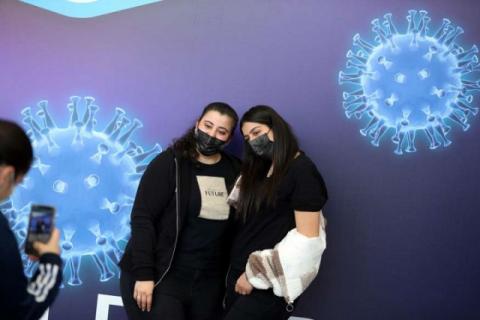Anti-Vaxxers in Israel Fear Exclusion as Economy Reboots

Israel has led the world in COVID-19 vaccinations. Now it faces another challenge that other countries will have to grapple with: how to balance public health and the rights of the unvaccinated.
Its decisions will affect every walk of life - from schools to work, and culture to worship.
Half of Israelis have received their first shot, and the country began reopening its economy this week after a year of lockdowns and remote working.
But several activities have been deemed off-limits to the unvaccinated, angering those who cannot get the jab for health reasons, or refuse it as a matter of principle.
Some employers already plan to ban unvaccinated workers from the office, which rights groups fear could cost them their jobs. Unions have suggested workarounds, such as COVID-19 tests every 72 hours.
"I'm already at peace with the fact that I won't be invited to certain events or allowed into areas of entertainment," said Hila Bar, a business owner who is sceptical of medical science and does not plan to get vaccinated.
"So I won't go," she said. "And I won't patronise certain businesses either - not because I don't want to, but they do not want my business."
Israel, where the vaccine rollout is fast but not mandatory, is a world leader in inoculations. Other countries are likely to scrutinise its early experience to see how it addresses mostly unanswered questions about balancing individual rights with obligations to public health.
"Whoever does not get vaccinated will be left behind," Health Minister Yuli Edelstein warned in recent weeks.
Edelstein has made clear that newly introduced perks for the vaccinated - including access to theatres, gyms, and resort areas along the Dead Sea - are incentives to get...
- Log in to post comments









